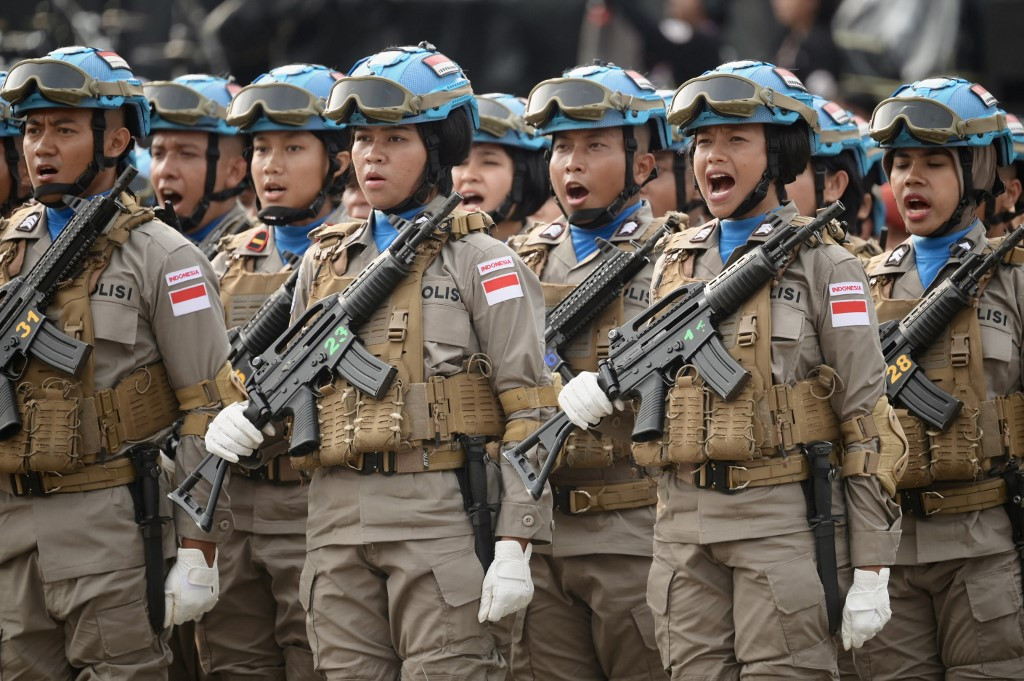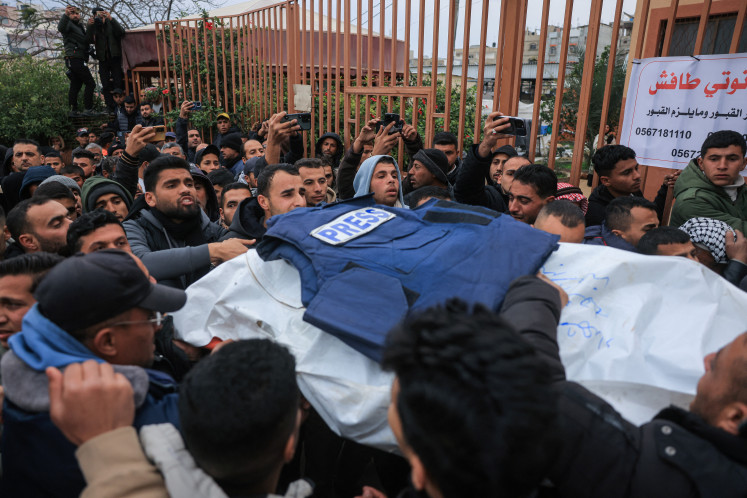Popular Reads
Top Results
Can't find what you're looking for?
View all search resultsPopular Reads
Top Results
Can't find what you're looking for?
View all search resultsBeyond troops, building peace
Security has been defined through militaristic and state-centric approaches, often overlooking women’s unique experiences and contributions in times of conflict.
Change text size
Gift Premium Articles
to Anyone
I
ndonesia’s vision to become a contributor to global peace is gaining ground. President Prabowo Subianto’s initiative to deploy 20,000 or more peacekeepers to conflict zones such as Gaza is a reaffirmation of Indonesia’s role on the world stage.
It is an ambitious and commendable move, yet one that must be balanced with an inclusive, data-driven domestic transformation, fully aligned with the spirit of UN Security Council Resolution 1325 on Women, Peace and Security (WPS), which marks its 25th anniversary this Oct. 31.
The WPS agenda signifies a fundamental paradigm shift in diplomacy, security and development. Historically, security has been defined through militaristic and state-centric approaches, often overlooking women’s unique experiences and contributions in times of conflict.
Resolution 1325 and its subsequent resolutions (such as 1820, 1888, 1889, and beyond) recognize that armed conflict affects women and men differently, and that women’s meaningful participation in all stages of peace processes, from prevention and mediation to resolution and post-conflict recovery, is essential for achieving sustainable peace.
In Indonesia, implementing the WPS agenda is profoundly relevant given our ethnic, religious and regional diversity, as well as our history of social conflict. Civil society organizations (CSOs) play a vital role in translating global WPS principles into locally grounded and practical contexts.
Yet paradoxically, global data shows that while Indonesia enjoys macro-level stability, gender-sensitive security lags behind. The 2024 Global Peace Index (GPI) ranks Indonesia 48th out of 163 countries, while the 2023/2024 WPS Index places us at 72nd out of 177. This gap underscores that our definition of security, anchored in military strength and diplomacy, has yet to fully embrace justice and women’s participation. Power structures shaping security policy remain centralized and male-dominated, failing to recognize women’s crucial grassroots roles.
Women’s participation in Indonesia’s formal security institutions remains minimal. Female personnel in the Indonesian Military (TNI) and the National Police are estimated to comprise only about 10 to 15 percent and 6 percent of the total. This is a stark reflection of women’s limited access to formal authority. Yet, field data and historical experience reveal women’s vital contributions.



















